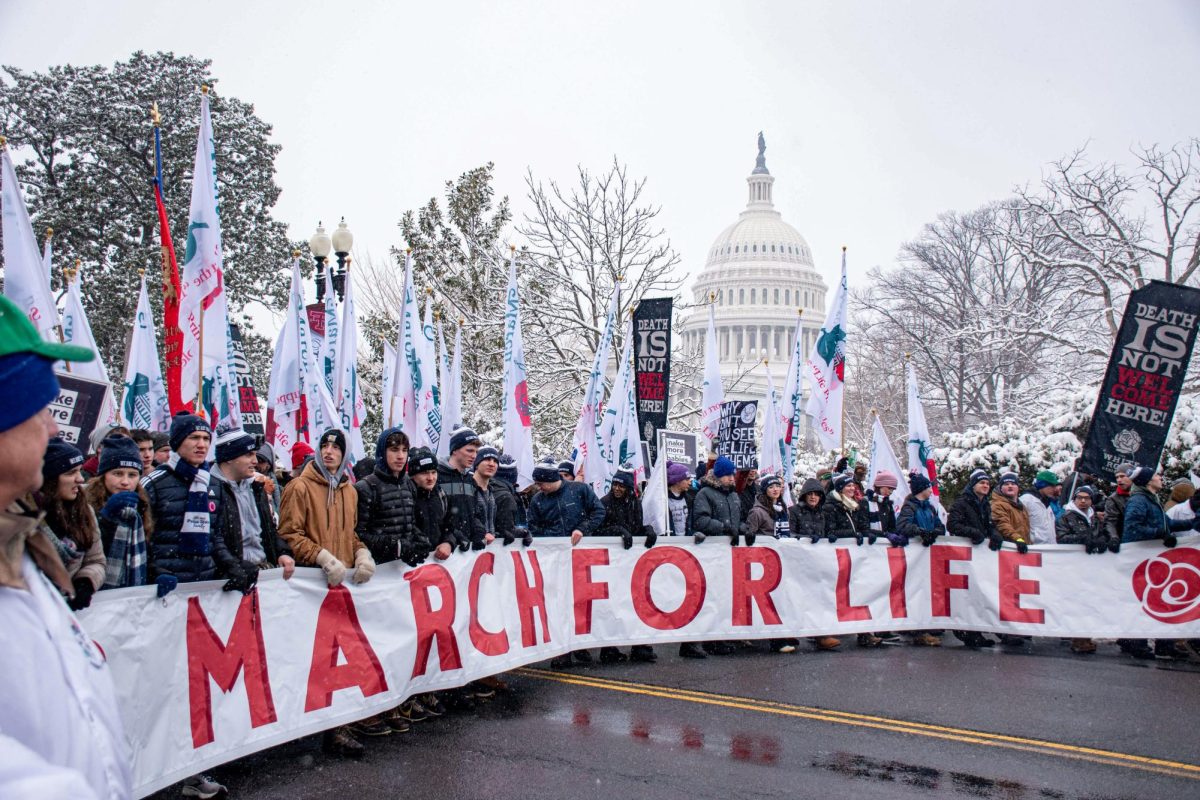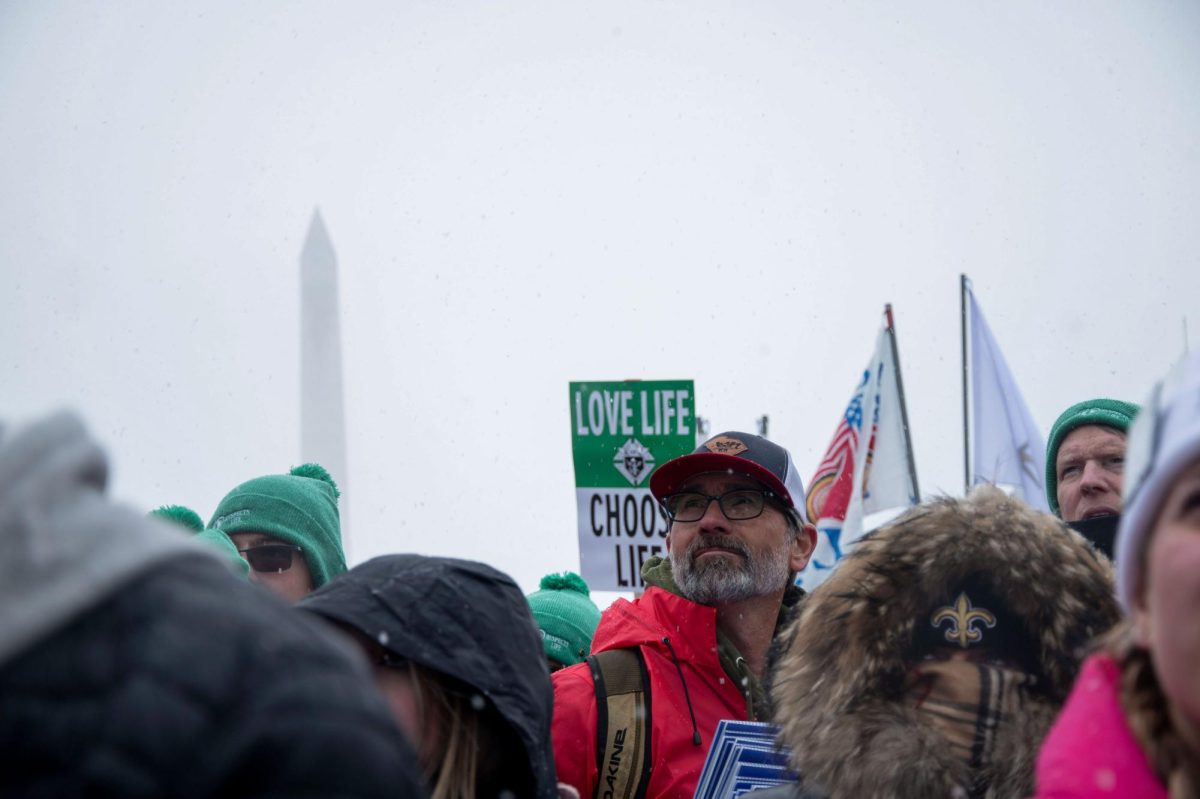Thousands of anti-abortion protesters gathered on the National Mall on Friday for the annual March for Life to demand legislators implement federal abortion bans.
Large student groups from local colleges and schools from across the country, like the University of Dayton and Lancaster Bible College in Pennsylvania, convened on the Mall in snow and freezing temperatures to show younger generations’ support for the anti-abortion movement. Friday’s protest marked the second March for Life since the Supreme Court overturned Roe v. Wade in 2022, ending constitutional abortion protections and triggering the implementation of state laws that restrict abortion.
Megan Clancy, the president of GW Catholics, said about half a dozen members from the organization attended mass at St. Matthew’s Cathedral in Dupont Circle before heading to the march. She said March for Life was a “really wonderful opportunity” for the organization because many of their beliefs as Catholics revolve around the innate dignity of every human being, including “people in the womb” and those on their deathbed.
Clancy said she hopes lawmakers will pass bills that aim to protect mothers and women who unexpectedly get pregnant, fetuses and children. She said this legislation will help women avoid feeling as if they’re “backed into a corner” in having an abortion because they can’t stay in school or afford to have a child.
“What we’re fighting for is policies and solutions and programs that will address and alleviate that crisis, not the unborn baby in the womb,” Clancy said.
The protest comes the day after the Republican-led House of Representatives passed two anti-abortion bills, including a bill that aims to require colleges to disseminate information on the rights and resources available for pregnant students. The second bill seeks to prevent the Department of Health and Human Services from discriminating against pregnancy resource centers.
House Speaker Mike Johnson addressed the crowd from a stage and said he was a product of an unplanned pregnancy, but his teenage parents “chose life.” He said the United States needs to build a culture that encourages and assists more people to make the same decision.
He said it is a “critical time” to promote quality health care for both women and their fetuses.
“We’re passing these bills and marching today because it takes a lot of work to convince people that every single unborn child has a value that is too profound and precious to ignore,” Johnson said.
Katelyn Rickert, a Georgetown University student, said despite the court overturning Roe v. Wade, there is still “a lot of work” to be done to make sure women and fetuses are supported in all states, including those that already have laws prohibiting abortion. She said abortions should be illegal in all states and hopes legislators will continue to pass legislation for new parents.
“If you look at a lot of the laws the states have done, they also include removing taxes on baby items, or creating resources for a woman who is pregnant to go and get those things,” Rickert said. “Those are the types of things we need to continue to push.”
Nick Cichon, a senior at Catholic University, said it’s vital for young people to be active in the anti-abortion movement to spread “love and awareness” to those experiencing unwanted pregnancies. Cichon said he attended the march “for everybody” because everyone has the right to a “good life.”
He said he hopes the movement will continue moving forward until abortion is illegal in every state.
“I have a lot of friends that have unexpected, unplanned pregnancies,” Cichon said. “I know a lot of people that are getting abortions right now, and it’s really important for them to feel like they are loved and that they are cared for in society.”
GW Reproductive Autonomy and Gender Equity planned to attend a counterprotest hosted by ReproAction — a national organization that aims to spread abortion education — outside the Supreme Court but posted on their Instagram story that they canceled the demonstration due to inclement weather the day of the march.
Isa Pardino, a nursing student in New York City, said she attended the march to celebrate women’s fertility as a prospective midwife and nurse practitioner who is “passionate” about women’s health. Pardino said she combines her Catholic background with her health care perspective in her belief that contraceptives like birth control “belittles what God gave us naturally” since she believes contraceptives diminish the body’s natural functions.
“Health care providers and a lot of like the people today kind of see women’s fertility as a burden,” Pardino said.






